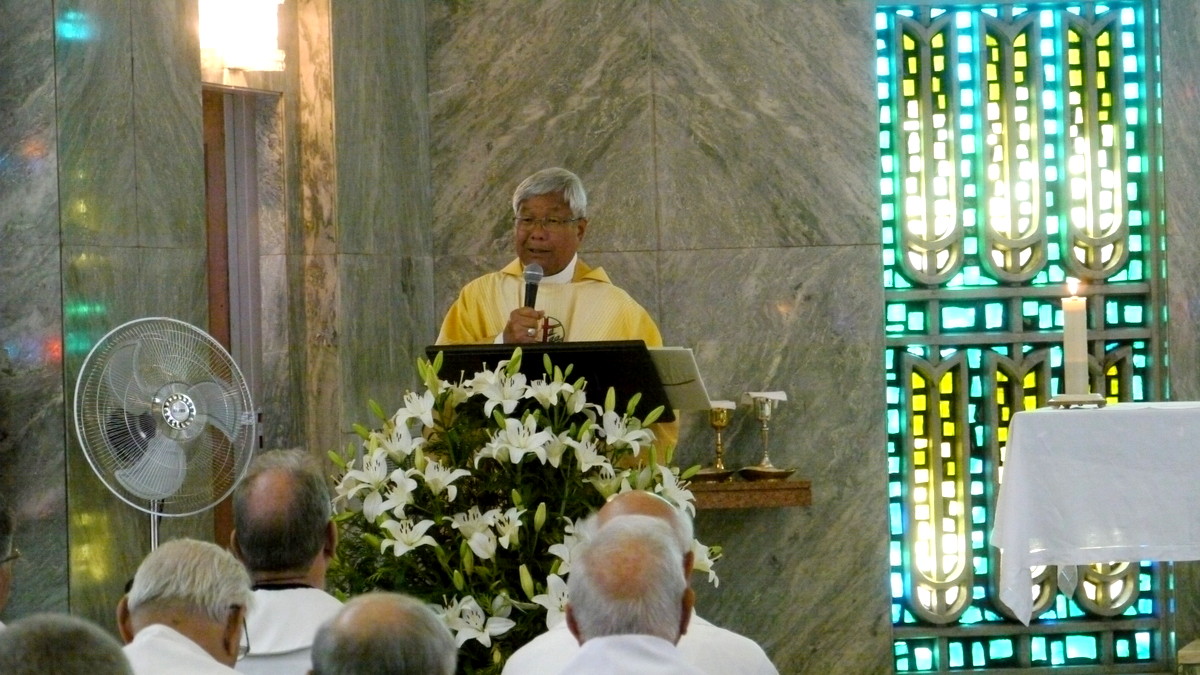 Every summer bishops from around the world gather for a preriod of rest and sharing of their lives while reflecting on being a Church that is instrument and sign of unity in the great variety of settings of the global society that is marked by so many tensions and contradictions. This year they met in Braga, Portugal. “In the Church today it is the moment of unity and communion, the moment when we are being invited to have a collective experience of God. We’re not here only because we’re each bishops, but because we’re brothers. We’d like to be a body of brothers like the first Apostles with Jesus.” These words were spoken by Cardinal João Bráz de Aviz during their Mass inside the Chapel of Apparitions as the 67 bishops from 27 countries made a pilgrimage to Fatima on August 4th.
Every summer bishops from around the world gather for a preriod of rest and sharing of their lives while reflecting on being a Church that is instrument and sign of unity in the great variety of settings of the global society that is marked by so many tensions and contradictions. This year they met in Braga, Portugal. “In the Church today it is the moment of unity and communion, the moment when we are being invited to have a collective experience of God. We’re not here only because we’re each bishops, but because we’re brothers. We’d like to be a body of brothers like the first Apostles with Jesus.” These words were spoken by Cardinal João Bráz de Aviz during their Mass inside the Chapel of Apparitions as the 67 bishops from 27 countries made a pilgrimage to Fatima on August 4th. 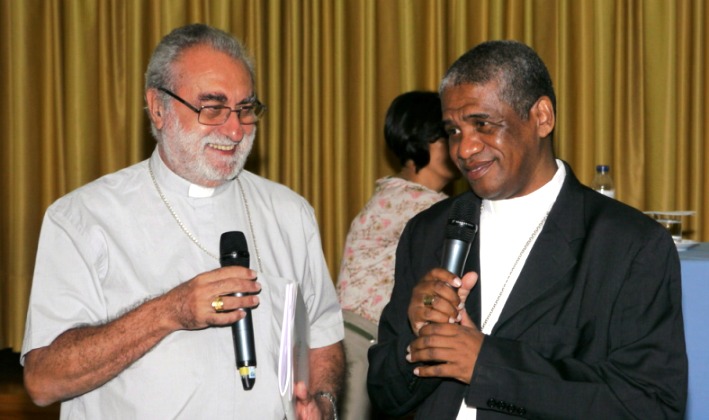 At the conclusion of the gathering Cardinal Francis Xavier Kriengsak Kovithavanij, Archbishop of Bangkok, Thailand summarized their experience in the following way: “We were really happy during these days. We’ve lived like brothers. We felt free and able to open our hearts to one another. Our only Teacher was truly among us. We felt that we were living in the house of Mary.” The bishops were welcomed at Mater Ecclesia Apostolic Centre near the Shrine of Our Lady of Sameiro, by Dom Jorge Ortiga, Archbishop of Braga. It was an appropriate setting for reflecting on the current world scene with international political expert Pasquale Ferrara, and the reform of the Church in the wake of Pope Francis with theologian Piero Coda. It was against this background that the bishops questioned themselves on how to be bishops with a synodal approach and put into practice a culture of shepherding that is marked by communion.
At the conclusion of the gathering Cardinal Francis Xavier Kriengsak Kovithavanij, Archbishop of Bangkok, Thailand summarized their experience in the following way: “We were really happy during these days. We’ve lived like brothers. We felt free and able to open our hearts to one another. Our only Teacher was truly among us. We felt that we were living in the house of Mary.” The bishops were welcomed at Mater Ecclesia Apostolic Centre near the Shrine of Our Lady of Sameiro, by Dom Jorge Ortiga, Archbishop of Braga. It was an appropriate setting for reflecting on the current world scene with international political expert Pasquale Ferrara, and the reform of the Church in the wake of Pope Francis with theologian Piero Coda. It was against this background that the bishops questioned themselves on how to be bishops with a synodal approach and put into practice a culture of shepherding that is marked by communion. 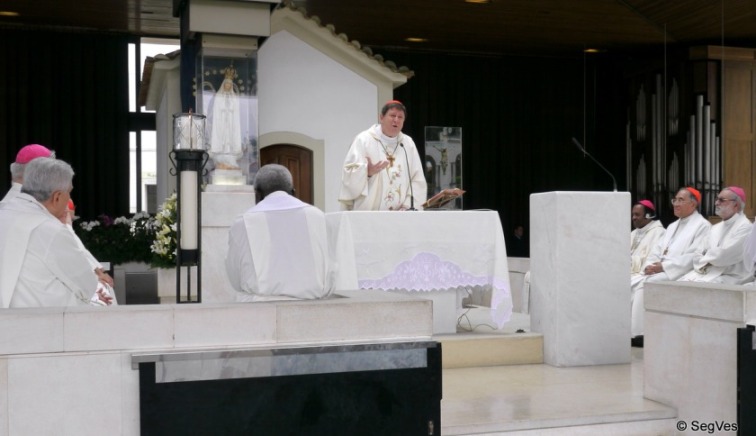 Plenary and small group meetings, walks and meals together were all opportunities to put in common painful situations and signs of hope: the anguished cry that rises from the Church in the Middle East; the growth of fruitful integration between basic ecclesial communities and new Movements and Communities in a large diocese of Brazil that offers a significant example of the Letter Iuvenescit Ecclesia (The Church that Rejuvinates), which was published in June by the Congregation for the Doctrine of the Faith; the challenges and potential of inculturation in a pluralistic context like India; the fruits that can come forth when a bishop and his auxiliaries live the common life and when a bishop manages to make himself a brother and friend of his priests; the arduous task of evangelization in a place like Madagascar that is marked by poverty.
Plenary and small group meetings, walks and meals together were all opportunities to put in common painful situations and signs of hope: the anguished cry that rises from the Church in the Middle East; the growth of fruitful integration between basic ecclesial communities and new Movements and Communities in a large diocese of Brazil that offers a significant example of the Letter Iuvenescit Ecclesia (The Church that Rejuvinates), which was published in June by the Congregation for the Doctrine of the Faith; the challenges and potential of inculturation in a pluralistic context like India; the fruits that can come forth when a bishop and his auxiliaries live the common life and when a bishop manages to make himself a brother and friend of his priests; the arduous task of evangelization in a place like Madagascar that is marked by poverty. 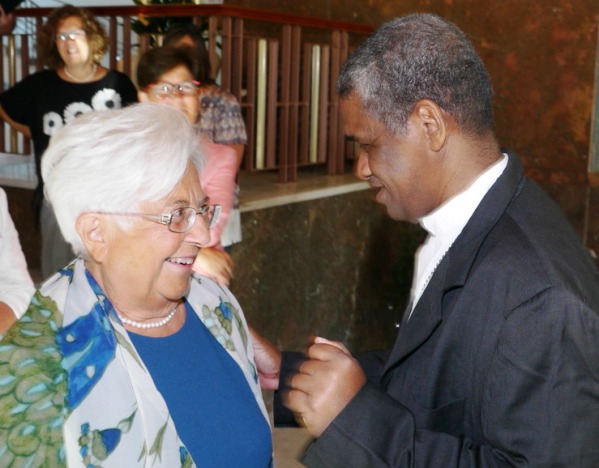 The two-day visit by bishops from other Churches – two Lutherans and one Syro-Orthodox – and an afternnon meeting with seven bishops from Portugal was mutually enriching. The spiritual part of the meeting had two main themes: Christ Crucified, which is one of the carindal points of the spirituality of unity; and love for the Church. These were presented in talks by Focolare president, Maria Voce (Jesus Forsaken, God’s Window & Humanity’s Window); and by co-president Jesús Morán (The Ecclesial Genius of Chiara Lubich and the Charism of Unity).
The two-day visit by bishops from other Churches – two Lutherans and one Syro-Orthodox – and an afternnon meeting with seven bishops from Portugal was mutually enriching. The spiritual part of the meeting had two main themes: Christ Crucified, which is one of the carindal points of the spirituality of unity; and love for the Church. These were presented in talks by Focolare president, Maria Voce (Jesus Forsaken, God’s Window & Humanity’s Window); and by co-president Jesús Morán (The Ecclesial Genius of Chiara Lubich and the Charism of Unity).
Give your life for God and for neighbour
Give your life for God and for neighbour


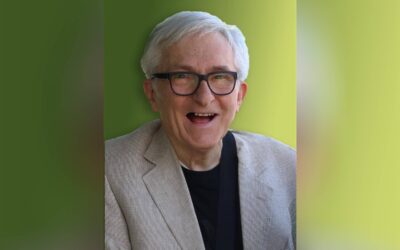
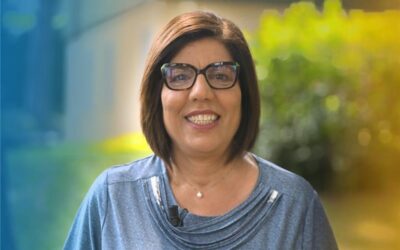
0 Comments